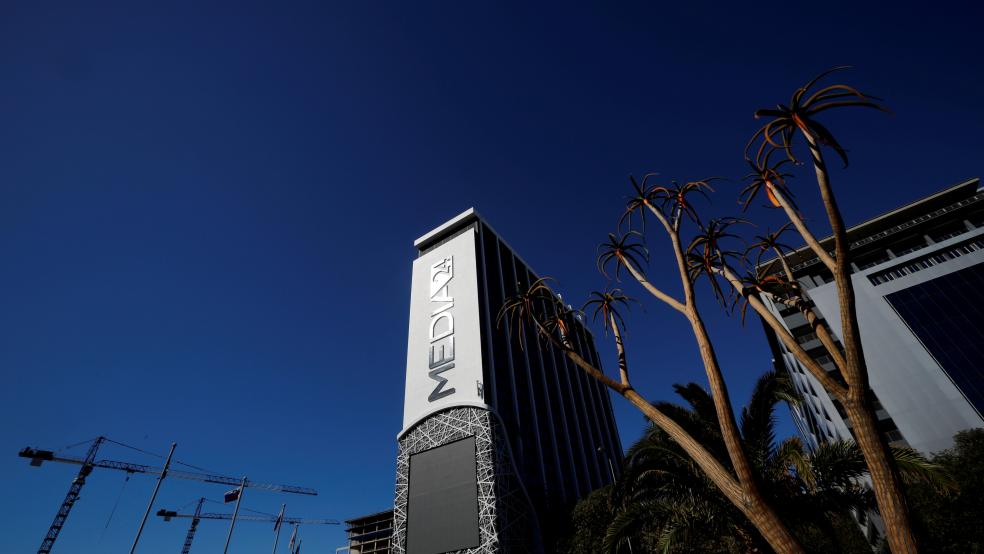JOHANNESBURG (Reuters) - It was the investment that transformed Naspers from a small-time South African newspaper publisher into Africa's most valuable company and made its long-serving director and chairman Koos Bekker a billionaire. Now, Naspers' 33 percent stake in Chinese internet company Tencent is worth about $100 billion, or 20 percent more than Naspers itself. It dwarfs other parts of the business, including its loss-making e-commerce unit and African pay-TV. Naspers has plowed in around $3.6 billion since 2012 to drive growth in e-commerce platforms such as e-classifieds, online retail and auction sites and reduce its dependence on Tencent and pay-TV, which thrives in South Africa but faces headwinds elsewhere.So far it has little to show for its investments and some investors say Bekker and chief executive Bob van Dijk must find new ways to close the discount between Naspers' stock and Tencent shares. "What is clear to the external observer is that developmental assets, largely e-commerce, are deteriorating in their group contribution relative to Tencent and are cash absorbing. Furthermore, it is difficult to see these assets reaching sizeable international scale," said Mark Ingham, an analyst Ingham Analytics Founded in 1915, Naspers has transformed itself from an apartheid-era newspaper publisher into a 1.2 trillion rand ($90 billion) multinational with private equity-style investments. But it owes much of that valuation to the $33 million bet in 2001 to take a stake in Tencent, whose breakneck pace of growth has catapulted it into China's biggest internet company with a $334 billion market capitalization. As Naspers's stake in Tencent is worth more than Naspers itself, this suggests the other assets are not reflected in the valuation. "We need to see those classifieds businesses actually in aggregate all swinging into profit, then you'll see the discount narrowing," said a fund manager at one of Naspers biggest shareholders, declining to be named because his firm does not want to make its views public.Naspers said it is working hard to narrow the discount. "Some discount to the Naspers sum-of-the parts value is unavoidable given our underlying investments in listed entities," said Meloy Horn, head of investor relations."Our aim is to build great businesses besides Tencent...We expect ...increased contributions from these fast growing e-commerce operations to be recognized by investors and through that process expect the discount to narrow over time." MOUNTING LOSSES Losses in Naspers' e-commerce division - which houses assets that include OLX, the biggest classified sites in India and Brazil - have been mounting every year since 2012. The e-commerce unit's operating losses totaled nearly 1 billion rand in 2012, and have surged nearly six-fold to 5.6 billion rand in 2016. "At the moment the (e-commerce division) as a whole is loss-making and I think the market is struggling to look through that," said Adrian Zetler, an analyst at Coronation Fund Managers - the second biggest investor in Naspers. Some investors were surprised when Naspers sold Allegro Group - one of the world's biggest online sites with more than 20 million registered users - in October to an alliance of investor funds: Cinven, Permira and Mid Europa partners. "If leverage is the in-thing, why get rid of Allegro, one of the better assets? " said Ingham.Naspers said at the time it was selling the business to pay down debt. To get decent returns from the money splashed on e-commerce ventures, Naspers would have to generate at least $1 billion in core profit, or earnings before interest, tax, depreciation and amortization, by 2021, Ingham said. PAY-TV IN FOCUS Naspers was founded in Stellenbosch, a close-knit town about 50 km east of Cape Town, as a publishing company called De Nationale Pers (The National Press) to promote Afrikaner nationalism. Its newspapers later became mouthpieces of a party that swept to power in 1948 on an openly racist campaign. The firm has apologized for its role in South Africa's past. Naspers began to pivot toward internet platforms at the end of the millennium, using cash from flagship pay-TV business to invest in e-commerce companies such as Mail.ru, which runs two of Russia's three biggest social networking sites. But mounting losses and the discount to its Tencent stake have prompted some investors to ponder potential avenues for Naspers to maximize value. "They could sell or unbundle [the pay-TV unit] when the business in the rest of Africa - outside South Africa - recovers, maybe three years from now," said Philip Short, an analyst at Old Mutual Equities, a top-20 investor in Naspers. The pay-TV business provides content to more than 10 million households in sub-Saharan Africa, bringing in around $600 million in annual core earnings, or EBITDA. Analysts estimate that a spun off and separately listed pay-TV business could fetch between 90 billion rand and 120 billion rand - at least 6.5 times its 2015 core earnings. Horn declined comment on speculation that it was considering selling MultiChoice Africa, the pay-TV division outside South Africa that is grappling with high content costs, loss of subscribers and unfavorable currency swings.However, Horn said: "It is possible that, in time, we could consider the listing of some our operations/investments if there is a situation where they would benefit from market exposure, independence, valuation, etc. We will evaluate such opportunities if/when they are presented."Byron Lotter, a fund manager at Vestact, an investor in the company, said it would be a bad idea to hive off the pay-TV unit because the company depends partly on it to pick up the check for its e-commerce ventures. "There may be some value unlocked but I don't think it is worth the impatience," said Byron Lotter of Vestact in Johannesburg.Horn said Naspers would help investors better understand how to value the stock by driving "an improved understanding of our business through ongoing engagement with investors and more transparent disclosure (to the extent that it does not impact negatively on our competitive positioning)." (Additional reporting and writing by Tiisetso Motsoeneng; editing by Anna Willard)

